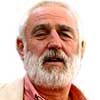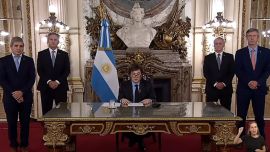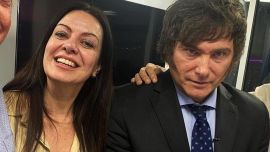If you were to argue before an audience that some major political changes of the 20th century had come from the Right, you might have to leave the room in haste under a barrage of unfriendly remarks from the leftist representation. So, even though readers and others may not have witnessed such a debate, the topic must have come to minds recently with the subject of US president Donald Trump, aged 71, announcing he will meet with the president of North Korea, Kim Jong-un, thought to be aged 33. The cautious suggestion (was it really a proposal?) is said to have come from China. Such a meeting would be the first of its kind since the end of the Korean War in July, 1953.
How far the argument can be pursued is an interesting poser. I can remember hard-liners in London arguing that the Communist revolution as such had ended with the death of Vladimir Ilyich “Lenin” (1870-1824) and the escape of Leon Trotsky (1879-1940) to Mexico, where Joseph Stalin had him murdered. And Stalin then loomed as an ordinary fascist tyrant flying a red flag. Referral to Das Kapital by Karl Marx (1818-1883) declined in Moscow. Over the years it was said this was because the book by the man in the British Library proposed a revolution that took the workers up into the middle classes rather than sinking all classes outside of the Communist Party system into the mud of the collective farms.
Revolutions in the 20th century were turned into an attractive project for budding rebels. In Argentina, on a small scale of course, the urban guerrillas of the 1970s asked Juan Domingo Perón to lead a progressive nationalist overhaul. What they really proposed was a shift in property ownership (be it industrial or land), killing a few people in the process. The military despots who followed learned a lot from this wild project, and bankrupted much of the meat industry and export system in the country. Anyway, there was not much revolutionary initiative in that period, and both sides had ignominious ends in the ruin of a nation. The urban guerrilla leaders were killed or scattered to various exile destinations. And the military were thrashed when they thought they would get world support for a landing on some freezing islands in the South Atlantic.
Just about contemporary with Argentina’s chaos, US president Richard Nixon was creating his own period of “revolution from the right,” not that anybody would want his decisions to be called anything like that in those days. That began with Nixon’s announcement, in August 1973, that the US was ending its military intervention in Vietnam, which had spanned 17 years (known as the Second Indochina War; the defeat of the French colonial rule at Dien Bien Phu in May 1954 was known as the end of the First Indochina War). The US military withdrawal from Indochina ended in April, 1975.
However, Nixon had hinted during his presidential campaign and then as elected president that he wanted to change the relationship of outright rejection with China, in force since Mao’s revolution in 1949. When Nixon actually announced in July, 1971, that he would be visiting Beijing and other cities in February, 1972, he shocked all his right-thinking allies and a few more. In fact, Nixon and his wife, Pat, had a fun time on that tour.
The visit itself later inspired an opera in the United States, which premiered in Houston, never in New York. However, the three-act play itself, with a script by Alice Goodman and staging by John Adams, gave rise to the remark: “Only Nixon could have gone to China.” Again, it is the man on the Right who does the staging on the Left. More important, of course is that Nixon’s opening of the road to China played down much of the old McCarthy-ist witch-hunt born with the Cold War and especially in opposition to the Soviet Union’s policies in Central Europe.
In his own spell as US president, Ronald Reagan could not allow himself to be left out of this international game. He knew that the world had begun to change. During his first term as president he had called the then Soviet Union an “evil empire” and referred to Soviet policy as having a future on “the trash heap of history.”
Soon after, Reagan announced that he and his wife Nancy would visit China. There he declared himself the first US president to address the nation from the Great Hall of the People. That was in April, 1984. At the start of his second term as president, Reagan’s line altered. In addition, he had one of his favourite political figures in the West, thenBritish prime minister Margaret Thatcher, supporting his every move and statement.
Thatcher took part of Europe by surprise too, in 1984. It was at the end of a visit to London by Soviet secretary general Michail Gorbachov, and wife Raisa, who had stepped into the British tour due to the illness of his then-dying chief, Konstantin Chernenko. On speaking to the press and referring to Gorbachov, Thatcher announced, “I can do business with this man.” It was unbelievable. And that in a ‘George Orwell year’ too.
In time, and especially after her re-election in 1983, Mrs. Thatcher staged her own revolution from the right in changing Britain. When the ‘New Labour’ prime minister, Tony Blair, entered office in 1997, he was seen as the Conservative leader’s ‘closest follower’ in terms of his policies.
In 1987, Ronald Reagan followed his China performance on a visit to West Germany. He went to the Brandenburg Gate, in Berlin, and from there challenged Gorbachov to come to the infamous Berlin Wall, built in 1961, and tear it down. The Soviet bloc began to break up. A little later on, and Europe started to change dramatically. Francis Fukuyama would then rewrite his 1989 essay so that it became, “The End of History and the Last Man” (1992).




















Comments